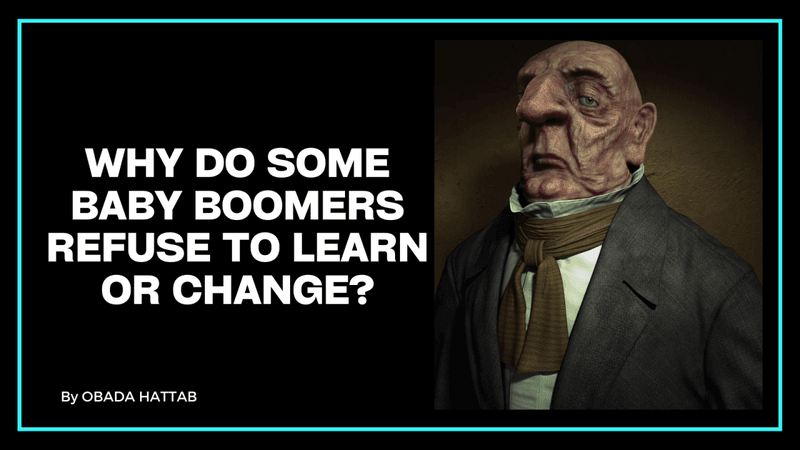In recent years, a generational clash has emerged, highlighting certain habits of Baby Boomers that tend to irk younger generations. While these behaviors are often well-intentioned, they can sometimes come across as outdated or out of touch.
This blog post explores 15 specific things Boomers do that commonly annoy others, offering insights into why they might be bothersome and how to address them in a constructive way.
1. Using Outdated Technology
Boomers often cling to outdated technology, causing frustration for those around them. While there’s nothing wrong with nostalgia, insisting on using devices like fax machines or flip phones can be impractical today.
This resistance to change might stem from comfort and familiarity, but it can hinder efficient communication.
Younger generations, who grew up with rapid technological advancements, may find this reluctance challenging. Encouraging Boomers to embrace new technology by offering guidance and support can bridge the gap.
Simple steps like introducing them to smartphones or streaming services can make a significant difference in connectivity and understanding.
2. Speaking Loudly on Phones
Have you ever noticed how some Boomers tend to speak loudly on their phones? This habit can be disruptive, especially in public spaces. While they might not realize the volume, it often draws unwanted attention.
The tendency to speak loudly might be due to hearing issues or simply a generational norm from when phone lines were less clear. Understanding this context can help in addressing the issue.
Politely mentioning the volume to them or suggesting a quieter environment for conversations can make a world of difference. Communication should be enjoyable, not bothersome to those nearby.
3. Relying on Cash Payments
Many Boomers prefer using cash over digital payment methods, which can slow down transactions and frustrate others. While cash is tangible and familiar, today’s world often leans towards digital solutions.
The preference for cash might come from a distrust of digital systems or a habit formed before the digital age. Encouraging Boomers to try contactless payments or mobile wallets can ease this transition.
Patience and understanding go a long way in helping them feel comfortable with modern conveniences. Plus, it can save time for everyone involved during busy shopping experiences.
4. Misusing Social Media
Social media misuse by Boomers is a common complaint. Posting in all caps, sharing misleading information, or over-sharing personal details can be problematic. It often reflects a lack of familiarity with digital etiquette.
This behavior might stem from not growing up with the internet, leading to misunderstandings about online norms. Offering a gentle guide to social media literacy can be beneficial.
Helping them understand privacy settings, fact-checking, and the impact of their posts can enhance their online experience. Facilitating positive interactions online benefits both Boomers and the broader digital community.
5. Complaining About Millennials
Boomers often voice complaints about Millennials, creating generational tension. Comments about work ethics, lifestyle choices, or financial habits can be hurtful and unfair.
This perception gap arises from different life experiences and societal changes. By focusing on commonalities and opening dialogues, both generations can learn from each other.
Encouraging Boomers to embrace change and understand millennial challenges can ease tensions. Mutual respect and understanding can foster healthier relationships.
Bridging this divide requires effort but leads to enriched intergenerational connections and shared insights.
6. Resisting Sustainability
Environmental consciousness is vital, yet some Boomers resist sustainable practices. Ignoring recycling or preferring single-use plastics can be frustrating for eco-conscious individuals.
This reluctance might be due to habitual convenience or a lack of awareness. Educating Boomers about the environmental impact of their choices can help shift perspectives.
Simple actions like introducing reusable bags or explaining recycling benefits can encourage positive change. A collective effort towards sustainability benefits everyone, fostering a healthier planet.
Encouraging open discussions about environmental responsibility can inspire Boomers to adopt greener habits.
7. Refusing to Retire
Some Boomers refuse to retire, continuing to work well past traditional retirement age. This can create challenges in the workplace, including limited opportunities for younger employees.
While staying active is valuable, understanding when to retire is important for both personal and professional growth. Boomers might feel financially obligated or fear losing purpose without work.
Open conversations about succession planning and mentoring can address these concerns. Encouraging a balanced life post-retirement can benefit everyone involved. It’s about finding harmony between experience and allowing new talent to thrive.
8. Sharing Unsolicited Advice
Unsolicited advice from Boomers can be annoying, especially when it feels outdated. While their intentions are often good, this habit can come across as intrusive.
Generational differences in upbringing and values may lead to differing viewpoints. Encouraging open dialogue and active listening can help bridge this gap. Boomers can offer wisdom without imposing it.
By fostering mutual respect and understanding, generational divides can be minimized. Advice should be a conversation, not a lecture. Creating a space for shared experiences allows both sides to learn and grow together.
9. Nostalgia for ‘Good Old Days’
Boomers’ nostalgia for the ‘good old days’ can be both endearing and frustrating. While reflecting on the past is natural, constant comparisons can dismiss present-day achievements and challenges.
This longing for the past might stem from significant life changes or discomfort with modernity. Encouraging Boomers to appreciate current advancements alongside cherished memories can balance perspectives.
Reminding them that each generation faces unique challenges fosters empathy and understanding. Nostalgia should celebrate history without overshadowing present progress. It’s about finding joy in both past and present experiences.
10. Resisting New Music
Resistance to new music is a common Boomer trait, often clinging to classic tunes from their youth. While there’s value in timeless music, refusing to explore new genres can limit shared experiences.
This hesitance may arise from a deep emotional connection to past songs. Encouraging Boomers to explore contemporary music can open doors to fresh cultural experiences. Offering playlists or attending concerts together can be enjoyable and enlightening.
Music is a universal language that evolves, and embracing new sounds can enhance intergenerational connections. It’s about expanding horizons while cherishing musical roots.
11. Declining to Learn Online Skills
Boomers often hesitate to learn online skills, leading to frustration in a digital-first world. This reluctance can hinder communication and access to information.
Fear of the unknown or perceived complexity might deter them from embracing digital tools. Encouraging patience and offering step-by-step guidance can assist Boomers in navigating the online landscape.
Highlighting the benefits of digital literacy, such as staying connected with loved ones, can motivate learning. A supportive approach fosters confidence and curiosity, enabling Boomers to thrive in today’s tech-driven society.
Bridging this digital divide enriches everyone’s lives.
12. Overusing Chain Emails
Chain emails are still popular among Boomers, often filled with dubious claims or urgent calls to action. This habit can clutter inboxes and spread misinformation.
The appeal of chain emails might lie in a sense of connection or nostalgia for early internet days. Educating Boomers about the potential pitfalls and encouraging critical thinking can reduce reliance on these messages.
Sharing reliable information sources and discussing digital literacy can foster healthier online habits. It’s about embracing the positive aspects of connectivity without falling into outdated practices.
Together, we can promote informed and responsible communication.
13. Preferring Traditional Media
Traditional media holds a special place for Boomers, who often prefer newspapers and TV over digital news. While there’s value in established sources, it can limit exposure to diverse perspectives.
This preference might stem from trust built over decades or a resistance to digital interfaces. Encouraging Boomers to explore online news platforms alongside traditional media can broaden their understanding.
Discussing the benefits of varied viewpoints and real-time updates can spark interest. It’s about blending trusted sources with new avenues for information. A balanced media diet enriches knowledge and fosters informed discussions.
14. Criticizing Modern Parenting
Boomers often critique modern parenting styles, leading to tension with younger parents. Comments on discipline, technology use, or lifestyle choices can feel judgmental.
This critique may stem from differing societal norms and personal experiences. Encouraging empathy and open discussions can bridge this generational gap. Boomers can share advice without undermining contemporary methods.
Recognizing the evolving nature of parenting fosters mutual respect and understanding. It’s about supporting each other in raising the next generation.
Constructive conversations create opportunities for sharing wisdom while respecting diverse approaches.
15. Ignoring Mental Health Awareness
Mental health awareness is crucial, yet some Boomers dismiss its importance, adhering to outdated stigmas. This attitude can hinder open discussions and support.
Understanding that mental health is as vital as physical health is key to bridging this gap. Encouraging Boomers to engage in conversations and learn about modern approaches can shift perspectives.
Highlighting personal stories or involving them in mental health initiatives can increase empathy. It’s about creating an environment where mental well-being is prioritized and supported.
Together, we can foster healthier attitudes towards mental health across generations.















